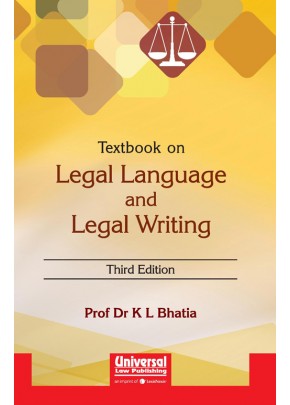Textbook on Legal Language and Legal Writing
Availability :
In Stock
₹ 495.00
M.R.P.:₹ 550
You
Save: ₹55.00 (10.00% OFF)
(Inclusive
of all taxes)
Delivery:
₹ 0.00 Delivery charge
Author:
Prof Dr K L Bhatia
Publisher:
Universal Law Publishing - An Imprint of LexisNexis; Third edition (1 September 2016)
Edition:
�3rd
ISBN-13:
9789350358146
No. of Pages:
650
Weight:
1 kg 520 g
Language:
English
Book Binding:
undefined











